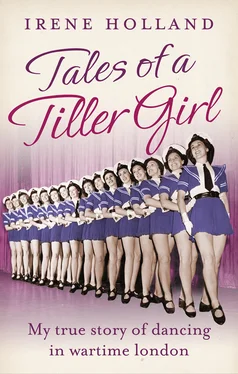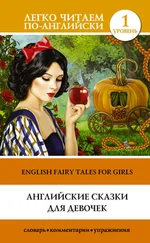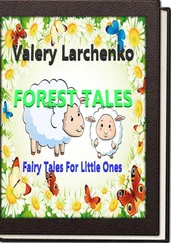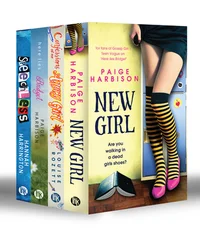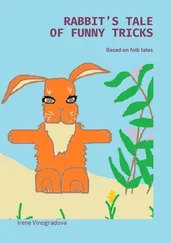‘No!’ I yelled. ‘I want to stay with Mummy.’
I kicked and screamed and made such a fuss it took three nurses to cart me off. My little body shook with sobs as they held me down on a table while the doctor poured peroxide in my poorly ear. It burned and stung, and I was petrified.
‘We have to be cruel to be kind,’ he told me. ‘This will hopefully kill the infection.’
There was no such thing as antibiotics then. Afterwards my ear was padded up with a big gauze dressing that had to be changed every week.
I was in such a state when they took me back to Mum, who looked really worried.
‘It’s all right, Rene,’ she said, giving me a cuddle. ‘You can come home with me now. It’s all over.’
‘Oh, thank goodness,’ I sighed.
I was exhausted but it was such a relief that they weren’t keeping me in. I had to go back every week for months so they could put more peroxide in my ear and I was in constant pain. Eventually it seemed to work and thankfully they managed to save my hearing, although I’ve still got scar tissue in my ear now.
As soon as I was better, Mum started working again. I was a bit older now, and she needed to try to earn some money to help support us. She would spend hours every day practising her violin, and then go to the theatre and perform in the orchestra at night when I was in bed. While she practised I would be left to my own devices to amuse myself, which wasn’t hard thanks to my vivid imagination.
One day I took myself off to Clapham Common and lay on my front with my nose in the long grass. I watched ants and ladybirds crawl around and worms slither in the soil, but I wasn’t there to look for wildlife.
‘Come out,’ I whispered. ‘I know you’re in there somewhere.’
I was there to find the fairies. I stayed like that for hours with my head buried in the grass, just watching and waiting for my favourite creatures to make an appearance. I believed that they were real and I could see them in my head. I knew that all fairies danced, they lived in flowers and they had very long, floaty wings like butterflies or moths. I used to spend hours lying there on the common waiting for them. I never told anyone, though, as I was frightened that they’d make fun of me.
Even now, at the ripe old age of eighty-four, if anyone asks what my religion is I tell them this: ‘I believe in fairies at the bottom of the garden!’
It often gets me a few funny looks. But I find it quite sad today that children don’t have vivid imaginations any more; they’re told so much.
I always say to my granddaughter Billie, ‘How do you know that I’m not a fairy?’
So she checked my back and found two little nobbles.
‘That’s where your wings will grow, Grandma,’ she told me.
Now, whenever I see her she checks my back to see if my wings have sprouted yet!
I suppose in a way I was a very lonely child as I was left on my own to get on with everything. Nobody asked me what I wanted to do or where I wanted to go, or thought up things to entertain me, so I had to make my own fun. In one sense it worked in my favour because I didn’t have to ask – Mummy, can I do this? I just went and did it. Although Raymond still lived with us, by now he had got a job as an apprentice for a company in central London that manufactured Bakelite, so he was out at work all day.
I knew my mother loved me and she was very affectionate, but all she lived for was her music. Looking back, I’d say she was very unsociable and introverted; she didn’t have friends and never went out. She would practise all day long and go out to work at the theatre at night. She never did anything but play the violin, and spent so many hours practising that I’d get fed up.
‘Mummy, I’m bored,’ I told her one afternoon.
‘Rene, only boring people get bored,’ she said.
So I decided to take myself off on an adventure. I walked down to Clapham and caught the No. 49 bus to the West End. I had a terrific sense of freedom that sadly children don’t have these days. Children were very free and I was always either on Clapham Common or Wandsworth Common, playing with friends, or on a Routemaster going somewhere exciting. I paid my tuppence ha’penny (two and a half old pennies) to the conductor and headed into town.
I sat on the top deck and looked out of the window as we went past Battersea Park and down the King’s Road. I got off at High Street Kensington and from there headed to Regent Street. I must have walked miles but I knew exactly where I was going – to my favourite place in the whole world, Hamley’s toy store. I wandered from floor to floor gazing in awe at the giant teddy bears, the life-size dolls, sailboats and pedal cars. Things I knew that my mother could never afford.
Afterwards I walked down Oxford Street to Selfridges. I loved the sense of grandeur as I saw the doorman in his top hat.
‘Good morning, Miss,’ he said, and I giggled as he held open the door for me.
In 1938 no one batted an eyelid to see an eight-year-old wandering round the West End on her own, but if it happened today I’d probably get taken into care by Social Services! There were plenty of other children doing the same thing, and often you’d see gangs of youngsters from the East End going up West to pick pockets.
I loved Selfridges and I knew all the departments like the back of my hand. I’d go straight up to the first floor to look at all the fancy ball gowns. I’d walk along the rails, touching the brightly coloured taffeta dresses and admiring the intricate beading. Sometimes I’d get the lift up to the roof, where I’d watch fashionable ladies and gents going for a promenade around the manicured gardens. There was even a café up there and a women’s gun club.
Afterwards I’d saunter along Oxford Street to Hyde Park, where I’d sit by the Serpentine and watch the birds and climb a few trees. Once, I was walking along a secluded path when I noticed a man coming towards me in a mackintosh. Call it a sixth sense, but I could tell straight away that something wasn’t right about him. He looked a bit scruffy and his clothes were all grubby. As he got closer he suddenly held his mac open, and I realised that he had his flies undone and his bits and pieces were hanging out for all and sundry to see!
‘Eurgh, put it away!’ I laughed.
But he just closed his coat, walked past and didn’t say a word.
I wasn’t scared or frightened, I just thought it was hysterically funny. If that was the way that he got his kicks then good luck to him, I thought. Then I caught the No. 49 home, my stomach rumbling with hunger at the thought of a boiled egg for tea.
In a way, even though I was still only eight I was a pretty savvy and streetwise child. Flashers were very common in those days and most of them seemed harmless to my friends and me. I coped with it better than my poor mother. I remember her coming home one night after work absolutely furious.
‘Oh my goodness, Rene,’ she said dramatically. ‘Something dreadful has just happened. I don’t believe it.’
‘What is it, Mum?’ I asked.
She explained how she had been on the Northern line and she’d been in the carriage on her own when a man had got on.
‘I’d just got up as mine was the next stop when he undid his trousers and exposed himself to me.’
‘What did you do?’ I asked her.
‘Well, I marched over to him and said: “How dare you do that to me, you disgusting little man.” I was so angry, do you know what I did, Rene?’
‘No, Mum.’
‘I was so cross, I got my violin case and I slammed it down really hard on his you-know-what. Hopefully that will teach him not to do that in a hurry again.’
My mum was a tiny woman, and she looked very prim with her two long plaits that she tied up on the top of her head. I bet he hadn’t been expecting her reaction.
Читать дальше
